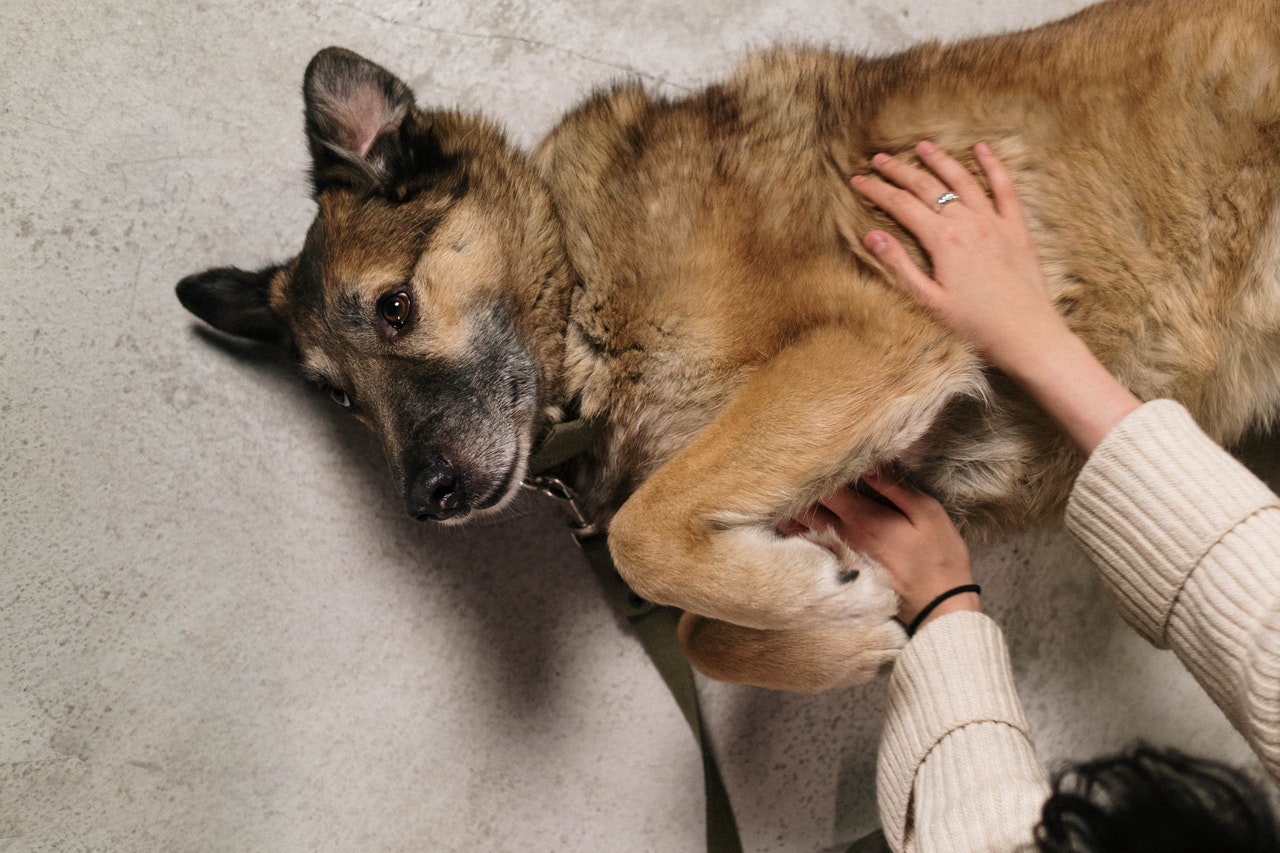German shepherds just like humans can get dandruff. Can you imagine how uncomfortable you feel when you have dandruff and it is only on the head alone, what will your German shepherd feel when he has dandruff on his entire body? Dandruff will obviously make his life miserable and you have to know what caused it and how to treat it.
Your germen shepherd can have dandruff because of regular baths, allergic reactions, inherited conditions, yeast infections, hormonal disorders, a transition from puppyhood to adulthood, or walking dandruff and other insects.
Contents
Why Does My German Shepherd Have Dandruff?
Regular Baths
Even if you like how your German Shepherd looks after a bath, overdoing it is never a smart idea. This is because the more you bathe your dog, the more its natural oils are eroded. Natural oils keep your dog’s coat from drying out and becoming unpleasant.
Allergy Reactions
Your German shepherd may get dandruff as a result of exposure to certain irritants. Paint and pollen are examples of irritants. If your GSD has dandruff due to allergies, you should eliminate the irritant that is causing it.
Inherited Conditions
Dandruff is frequently caused by a secondary disease. However, it’s probably a primary, inherited condition. Prevention is tough in these conditions, but regular use of anti-dandruff shampoo, a high-quality diet, and supplementing the dog’s diet with fatty oils may assist to alleviate the problem’s intensity. Regular grooming of your dog will assist to reduce dandruff by removing dead hair and skin and smoothing naturally formed body oils over his skin and hair coat.
Yeast Infection
If your dog’s immune system is compromised, he may suffer yeast infections. These opportunistic yeast infections will grow out of control, causing an excess of oil to be produced on the dog’s coat. This oil builds up a lot on the dog’s coat, causing irritation.
Hormonal Disorder
Skin issues and dandruff can be caused by hormonal disorders which lead to diseases such as Cushing’s disease or hypothyroidism. The symptoms of the condition, such as dandruff, will be addressed with hormone-regulating or replacement medication.
Transition From Puppyhood To Adulthood
When your young German shepherd transitions from puppyhood to adulthood, a lot of hormonal changes occur. Dandruff can be caused by hormonal changes, muscle development, and the shedding of the puppy coat. Unfortunately, there isn’t much you can do to assist your dog in this scenario; all you can do is wait. But remember switching your German shepherd from puppy food at the right time can have a great impact on his overall health.
Walking Dandruff and Other Parasite
Cheyletiella mites are large enough to be noticed with the bare eye and look like white dandruff flakes in appearance. These bothersome guests, such fleas, ticks, Demodex, and Sarcoptes mites, dwell and feed on your dog’s skin, causing him to itch.
How Do I Know If My German Shepherd Has Dandruff?
Dandruff is a sign of dry skin in your German Shepherd. Dandruff can be detected by parting your dog’s hair and looking at the skin directly to see whether there is any dandruff.
- Hair loss is a regular occurrence in the affected areas.
- Itchiness
- Coat of greasily textured hair
- Scaling
- It is irritating to the skin.
- Redness
- On the scratchy coats, there’s an odor.
- The dog seemed to be becoming increasingly restless.
German Shepherd Dandruff Treatment And Home Remedies
Grooming
Regular grooming is essential for a dog’s skin and coat health, as well as a key component of dandruff management. Brushing your dog eliminates dead hair and distributes extra skin oils throughout his coat, preventing them from pooling on his skin. Brush your dog daily if he or she has a dandruff breakout, and once a week for routine upkeep. For long-haired German shepherds, misting with water or using a conditioning spray designed for dogs can help reduce static, however, you should contact your veterinarian beforehand to ensure that any grooming product you use won’t interfere with other treatments your dog is undergoing.
Bathing
Bathing your dog can help with seborrhea breakouts as well as bacterial and fungal illnesses. Your veterinarian may recommend a medicated shampoo after determining the reason for your dog’s skin problems. Carefully follow the recommendations on the bottle. To accomplish their work, certain shampoos must be used on the dog many times. Give heed to how often your German shepherd should be bathed, as excessive bathing can dry up your dog’s skin, worsening or causing new symptoms. Whether you’re using a medicated shampoo for a dandruff outbreak or a conventional shampoo for regular grooming, rinse thoroughly after each bath because many shampoos are unpleasant if not rinsed out.
Apply Coconut Oil
Have some coconut oil in liquid form on hand. Then place it in the refrigerator until it solidifies. When it’s hard, leave it for an hour before applying it to your dog’s skin where it’s been scratched a lot. After scratching, coconut oil relieves the stinging sensation.
Give Proper Diet
The skin health of your German shepherd is influenced by the diet you feed it. For German shepherds with seborrhea dermatitis, a diet rich in fatty acids is recommended. A diet rich in fatty acids encourages the development of good skin. When shopping for German shepherd food, look for food formulated for dogs who suffer from skin diseases like seborrhea. Consult your veterinarian about the ideal diet to avoid seborrhea if you have any doubts.
Conclusion
There are many reasons why your German shepherd is having dandruff. You must find the root cause of his dandruff for you to come up with the best solution. Treat dandruff as soon as you confirm it has invaded your dog to spare him all the discomfort.
